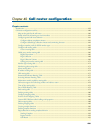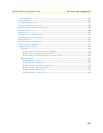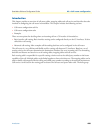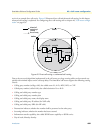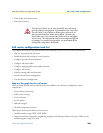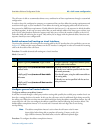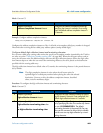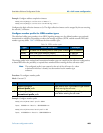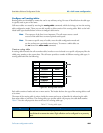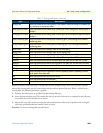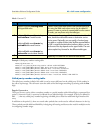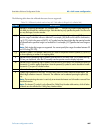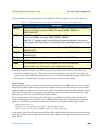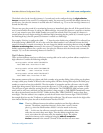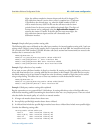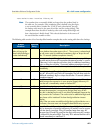
Call router configuration task list 464
SmartWare Software Configuration Guide 40 • Call router configuration
Configure call routing tables
Routing tables are identified by names that can be any arbitrary string. For ease of identification the table type
is typically used as part of the name.
Call router tables are created by entering the
routing-table command, which also brings you into the routing
table configuration mode. There you can add, modify or delete entries of the routing tables. Refer to the indi-
vidual table types detailed below on how to configure table entries.
Note The sequence of the lines is not important. The call router creates a search
tree out of the table lines to ensure optimal search speed.
Note To remove a specific entry of a table, enter the table configuration mode and
use the no-form on a previously entered entry. To remove a whole table, use
the
no form of the table mode command.
Create a routing table
A routing table forwards the call to another table, interface or service based on a specific call property like the
called party number or the current date. The call router provides a number of different routing table types. A
routing table looks like the following:
Figure 63. Routing table outline
Each table contains a header and one or more entries. The header declares the type of the routing table as well
as its name.
The name of the routing table is unique inside the context and serves as identifier for referencing the table
from other tables or interfaces. The routing table type specifies which call property the table shall examine.
Table 17 lists the call properties that can be used as a routing table type.
Table 17. Routing table types
Type Description
called-e164 Route calls based on the called party E.164 number. Entries of called-e164 tables can
use wildcards to summarize routes. Digit collection can be configured on a per-entry
basis.
Type
Name NATIONAL
called-e164
Key Destination Function
001 if USVOIP-A
0044 if EUROVOIP
Header
Entries
0049 if EUROVOIP
default if DEFACC ADD-PREFIX
001320 if USVOIP-B



